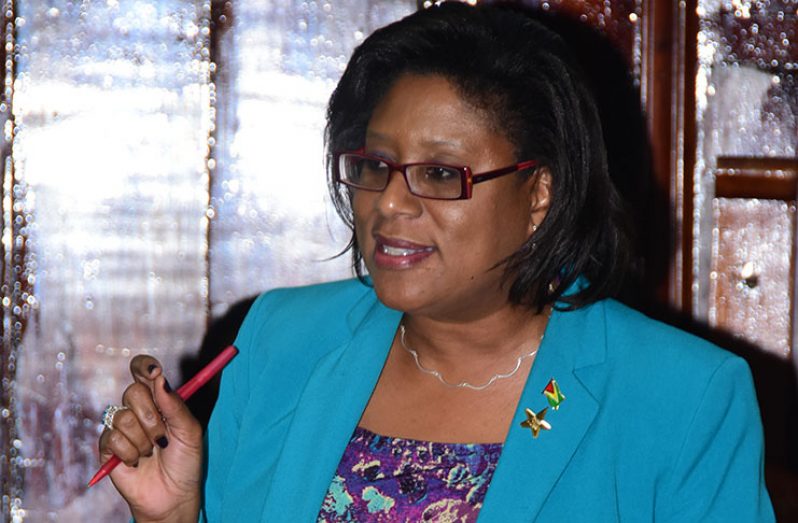THE Parliamentary Standing Committee on Appointments is making headway in the selection of persons nominated to sit on the Ethnic Relations Commission (ERC).
Committee Member and Minister of Public Telecommunications, Catherine Hughes, told reporters on Wednesday that, “I think we are making headway,” while noting that, “We are actually at the stage where we are getting the nominations from the various NGOs and civil organisations and that is a very long process.”
She explained that the task is an onerous one as some of the agencies the Committee is required to meet with, only meets on a monthly basis. The Committee Member said as a result, the process involves the Parliamentary Standing Committee writing the agencies that then have to do their nomination process and submit a name to the Committee.
“We are meeting every other week; so we are moving as fast as possible to ensure we get the list of nominations for the other committees and commissions that are outstanding,” Hughes disclosed.
Under Article 212 of the Constitution, the ERC advocates equality of opportunity among persons of different ethnic groups; promotes the elimination of all forms of ethnic-based discrimination; and discourages persons, institutions, political parties and associations from indulging in discriminatory practices.
According to Article 212A, the ERC shall comprise of no less than five nor more than 15 members nominated by entities, by a consensual mechanism determined by the National Assembly, including entities, representatives of religious bodies, the labour movement, the private business sector, youth and women, and after, the entities are determined by the votes of not less than two-thirds of all elected members of the National Assembly.
Additionally, the Constitution mandates that the ERC promotes educational and training programmes and research projects which provide for and encourage ethnic peace and harmony; encourage and create respect for religious, cultural and other forms of diversity in a plural society, promote arbitration, conciliation, mediation and like forms of dispute resolution in order to secure ethnic harmony and peace.
The ERC is also required to recommend to the National Assembly, criteria to be considered for the purposes of deciding whether any person has committed acts of discrimination on the ground of ethnicity; investigate complaints of racial discrimination and make recommendations on the measure to be taken if such complaints are valid, and where there is justification, refer matters to the Human Rights Commission, or other relevant authorities. The Commission also has to monitor and review all legislation and administrative acts or omissions relating to, or having implications for ethnic relations and equal opportunities among others.
The ERC is derived from recommendations of the Herdmanston Accord, signed on January 17, 1998, between then President Janet Jagan and Opposition Leader Desmond Hoyte. Brokered by a CARICOM mission, the Accord sought to provide a peaceful solution to the political impasse that had gripped the country after the contentious December 1997 Regional and General Elections. The first members of the ERC were appointed in 2003 in compliance with the new constitutional provisions.
Nominees for ERC being scrutinised
SHARE THIS ARTICLE :
Facebook
Twitter
WhatsApp





.jpg)








